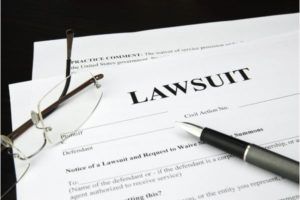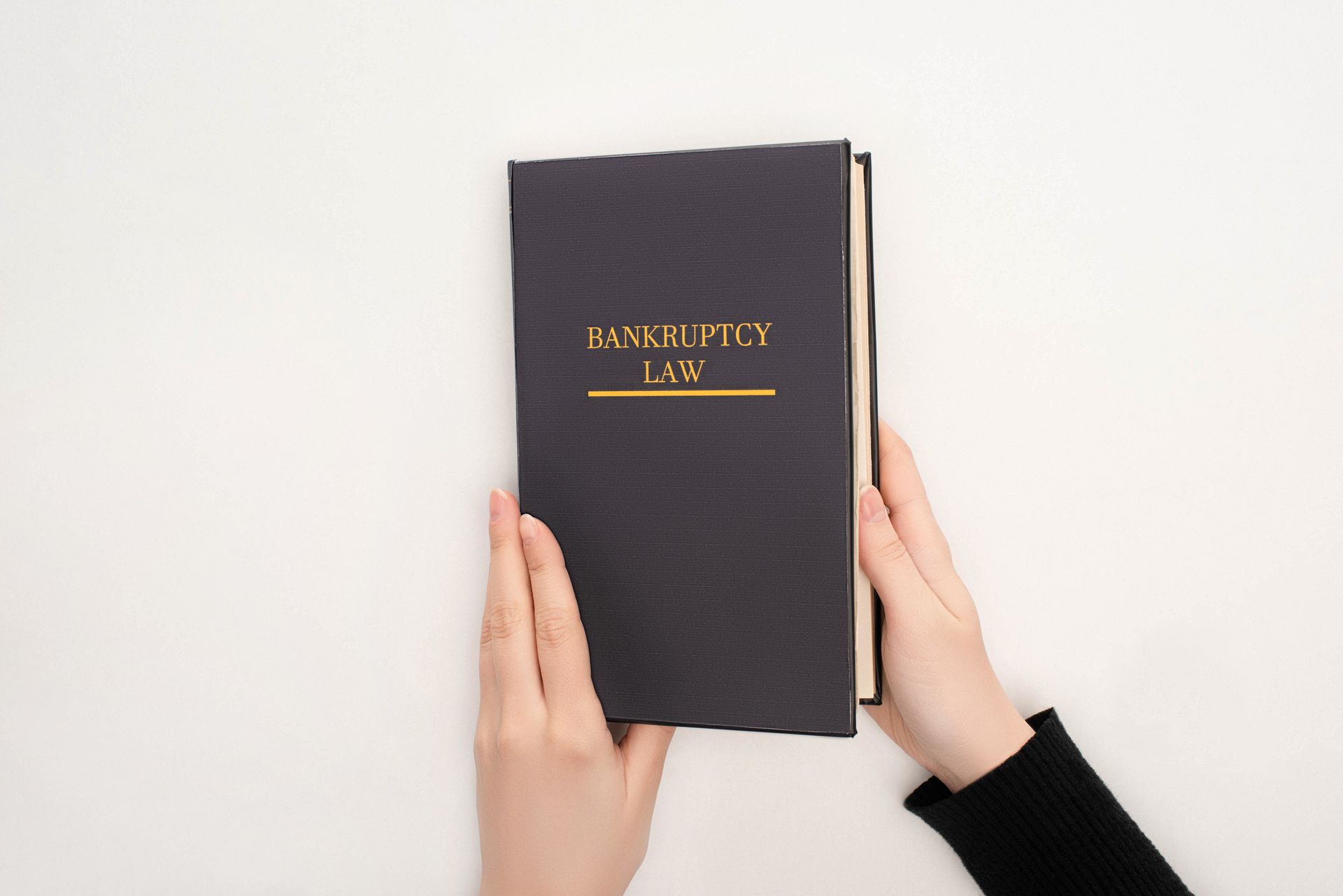Filing Chapter 13 Bankruptcy to Stop a Lawsuit
 When attempting to determine if filing Chapter 13 bankruptcy
will stop a lawsuit, there are many factors to consider. Factors to consider include what type of lawsuit you are facing, the kind of debt the lawsuit covers, and whether you filed the suit or someone else filed suit against you.
When attempting to determine if filing Chapter 13 bankruptcy
will stop a lawsuit, there are many factors to consider. Factors to consider include what type of lawsuit you are facing, the kind of debt the lawsuit covers, and whether you filed the suit or someone else filed suit against you.
Bankruptcy is Designed to Protect Consumers and Creditors:
Bankruptcy is a legal process offering consumers legal protections against overwhelming debt. For many, filing bankruptcy brings order to chaos. One way in which bankruptcy creates order and fairness is by attempting to even out the playing field for creditors. Bankruptcy protects smaller, less powerful creditors from being entirely outplayed by large, powerful creditors.
How Does Bankruptcy Offer Protection?
The bankruptcy code defines the protections of bankruptcy. One of the most potent tools bankruptcy code offers bankruptcy petitioners is the automatic stay, an injunction that takes effect as soon as a petition is filed and prevents creditor collection actions during bankruptcy. Collection activities are stopped during bankruptcy to allow the court the time to administer the case. If collection activities weren’t blocked, it would make managing the case significantly less worthwhile and, in some cases, impossible. Some aren’t sure what “collection activities” means precisely. When discussing the effects of the automatic stay and how it stops all collection activities, it refers to creditor phone calls, demand letters or emails, new filings with the court seeking payment through legal actions like foreclosure, wage garnishment, and other lawsuits.
How Does Bankruptcy Affect Different Types of Lawsuits?
Collection of a Debt: Creditors that file lawsuits to collect a debt expect the court to enter a judgment in its favor to settle any questions about liability and the amount owed. Once the creditor receives a judgment, the law provides them with additional collection powers, including seizing bank accounts, wage garnishment, etc. Judgments can also act as a lien against any real estate in the name of the borrower. Debt collection lawsuits are in the jurisdiction of the bankruptcy court, so the automatic stay stops this type of lawsuit immediately. A “Suggestion of Bankruptcy” is filed in the collection suit telling the judge that a bankruptcy case is pending. All activity stops (at least until the bankruptcy court enters a discharge). In most cases, the state court will dismiss the case once the debtor receives a discharge in bankruptcy court.
Judicial Foreclosure Actions: Georgia is a non-judicial foreclosure state and Tennessee has the option for non-judicial foreclosure, so real estate foreclosures faced by Georgia and Tennessee homeowners do not require the lender to file a lawsuit, but if a filer happens to be dealing with a judicial foreclosure in Tennessee, lenders must obtain permission from the court to foreclose on a property. And filing a bankruptcy case stops the judicial foreclosure. For more information about when and how bankruptcy can help you avoid foreclosure in Georgia and Tennessee, contact an experienced bankruptcy attorney.
Child Custody, Divorce, or Other Domestic Actions: Many family law related lawsuits are not stayed or postponed by a bankruptcy filing. Family court judges may put a case on hold if they feel it is best – this frequently called a “comfort order.” Bankruptcy court generally has little interest in domestic relations or family matters and does not interfere with marriage dissolutions, parental rights, etc.
Spousal Support and Child Support Actions: While the bankruptcy court doesn’t interfere with divorce or custody, the family court’s imposition of child support or spousal support orders can affect a bankruptcy case. An order requiring this type of financial responsibility on the part of the petitioner can have a significant effect on their resources. Bankruptcy courts may reserve jurisdiction over a property settlement to avoid severe depletion of a debtor’s resources in favor of a single creditor (in this scenario, the bankruptcy court considers the soon to be ex-spouse as one of the petitioner’s creditors seeking payment). Yet bankruptcy courts rarely get involved unless a property settlement is far outside the realm of what is typical. A child support creditor (the other parent or a state agency) is subject to the automatic stay, but with a difference. Debts associated with child support are not discharged in bankruptcy. In a Chapter 13 bankruptcy, the petitioner pays off their past-due child support during their 3-5 year repayment plan. In Chapter 7 bankruptcy, the debt survives the bankruptcy and is still in place once the discharge for all eligible debt is received. Once the discharge is entered, the child support creditor can resume collection activities.
Code Enforcement & Nuisance Actions: Often related to enforcing building or construction codes, this type of lawsuit is typically allowed to proceed.
Evictions: If a lawsuit seeks eviction of a petitioner, special rules apply depending on the state of residence and the timing of the lawsuit and the bankruptcy filing. If the court has not yet issued the writ of possession, the automatic stay will stop an eviction. There is an exception if the property is endangered or illegal drug use is occurring on the property.
Criminal Cases: The bankruptcy court and bankruptcy’s automatic stay do not interfere with criminal cases involving murder or robbery, but cases involving money or property (such as bad checks or fees, etc.) may be affected. Generally speaking, if the lawsuit’s goal is reimbursement to the government for financial losses, the case is subject to bankruptcy’s automatic stay. For example, a highway toll case would be affected by the automatic stay, but a case involving a string of bad checks (even though it may involve financial restitution) focuses mainly on punishing someone for breaking the law, so it is not affected by the automatic stay.
Administrative Actions: Whether or not administrative actions are affected by bankruptcy’s automatic stay is determined on a case-by-case basis. Some administrative actions are primarily monetary, while others are primarily focused on police powers.
Lawsuit Filed by the Petitioner Against Another Party: Typically, the automatic stay does not prevent a debtor from filing suit against a third party as the automatic stay is in place to protect the debtor and the debtor’s property. This may lead to countersuits that could potentially be affected by the automatic stay, and filing suit against a third party during bankruptcy may not be beneficial in the long term.
If you are buried in debt and facing a lawsuit, we can help. Trust the experienced Tennessee and Georgia bankruptcy attorneys at Kenneth C. Rannick P.C. to help you determine your best options. We help good people through bad times every day, and we can help you, too.
The post Filing Chapter 13 Bankruptcy to Stop a Lawsuit appeared first on Kenneth C. Rannick, P.C..










